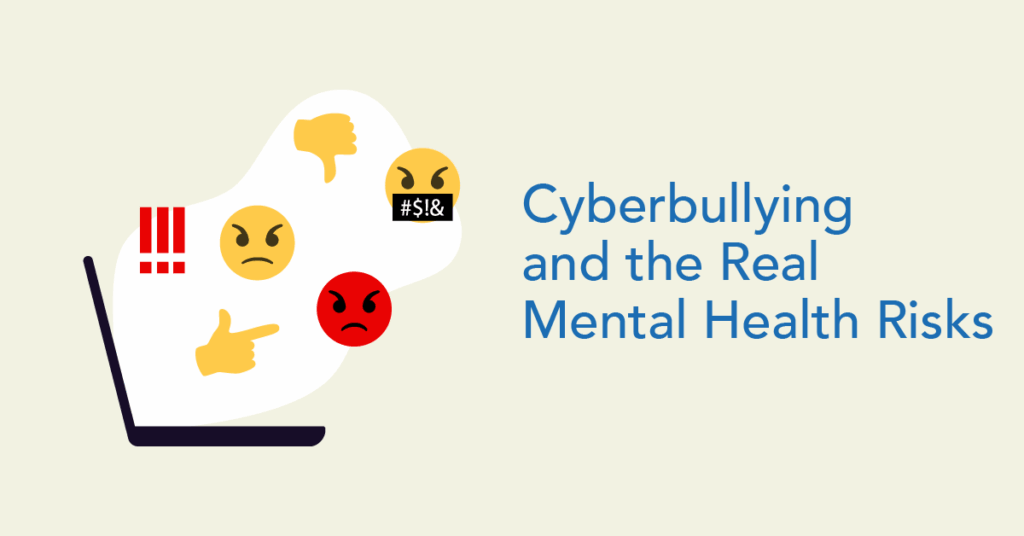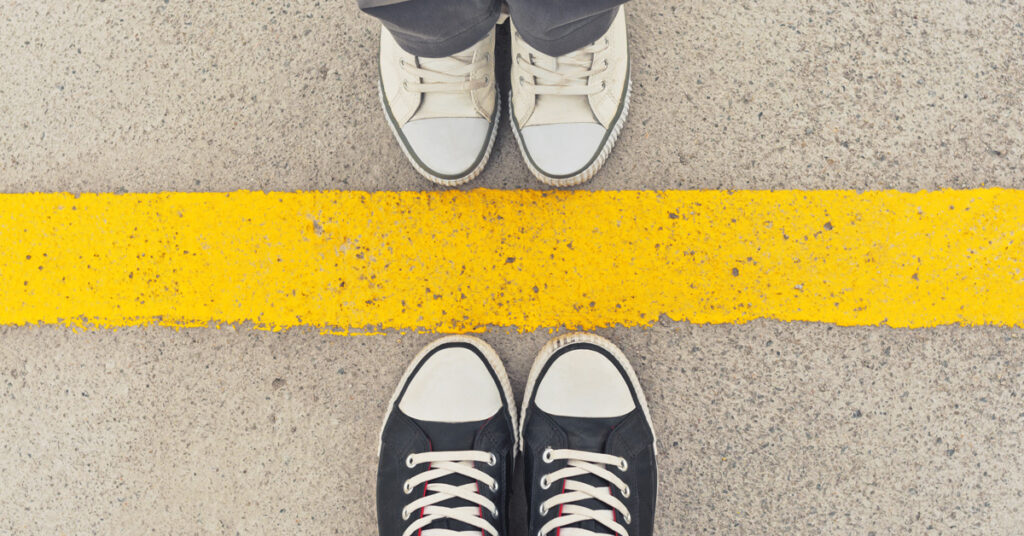Cyberbullying is a form of emotional abuse that takes place online, and it can seriously impact mental health by increasing the risk of anxiety, depression, low self-esteem and even suicidal thoughts.
Unlike traditional bullying, cyberbullying doesn’t stop when school ends or you leave the room. It follows people home through their phones, computers and social media accounts, often in subtle and ongoing ways. Over time, this exposure to harassment or humiliation can wear down a person’s emotional resilience.
This article breaks down how cyberbullying works, who’s most at risk and what it can do to someone’s mental health.
What Is Cyberbullying?
Cyberbullying refers to any form of repeated, intentional harm done through digital means. This can include:
- Sending threatening or abusive messages
- Spreading rumors or lies online
- Posting embarrassing photos or videos
- Excluding someone from group chats or online spaces
- Impersonating someone or creating fake profiles
- Engaging in public shaming or pile-ons
Because it’s digital, cyberbullying can happen at any time and reach a wide audience instantly. Victims often feel like they have no escape or safe space, especially when the harassment comes from people they know in real life.
Who Is Affected by Cyberbullying?
While anyone can be a target, teens and young adults are especially vulnerable. According to the the CDC’s Youth Risk Behavior Surveillance System, roughly 16% of high school students say they’ve experienced some form of cyberbullying over the past year.
However, cyberbullying isn’t limited to kids. Adults, particularly those in public-facing or marginalized communities, can face online harassment at work, on social media or in personal relationships. LGBTQ+ individuals, people with disabilities and those from racial or ethnic minority groups may also experience targeted bullying related to identity.
How Cyberbullying Affects Mental Health
Cyberbullying can have a powerful psychological impact. Because it’s persistent and often public, it can amplify feelings of shame, fear and isolation. Here’s how bullying affects mental health over time:
- Increased anxiety. Being targeted online can lead to chronic worry, fear of checking messages and hypervigilance. Victims may constantly fear being mocked, exposed or attacked online.
- Depression. One of the most serious effects of cyberbullying on mental health is a rise in depressive symptoms. Victims often report sadness, fatigue, hopelessness and withdrawal from friends or activities they once enjoyed.
- Low self-esteem. Bullying messages are often deeply personal. When someone is repeatedly told they’re unwanted, ugly or worthless, it can impact how they view themselves long after the messages stop.
- Social withdrawal. Victims of cyberbullying may avoid social situations, delete their social media accounts or stop engaging in school, work or hobbies to escape harassment.
- Academic and work impacts. Students may skip school to avoid confrontation, leading to falling grades. Adults may miss work, lose focus or experience conflict with coworkers due to online tension spilling into real life.
- Suicidal thoughts and behaviors. In extreme cases, cyberbullying has been linked to suicidal ideation and attempts.
Repeated harassment can create a sense of hopelessness or emotional exhaustion that becomes overwhelming
These risks aren’t exaggerations. They’re documented outcomes supported by years of mental health research and real-world stories.
Why Cyberbullying Feels So Intense
Several factors make cyberbullying’s effect on mental health especially harmful:
- It’s constant. There’s no break or safe zone, as people can be reached 24-7.
- It’s public. Harassment often happens in front of an audience, adding humiliation.
- It’s anonymous. Bullies can hide behind fake accounts, making them harder to stop.
- It’s permanent. Posts, images and comments can be screenshotted and shared indefinitely.
Even a single incident can cause distress, but repeated targeting can become traumatic.
What If You’re the One Being Bullied?
If you’re dealing with online bullying right now, know that it’s not your fault and you’re not alone. Here are some steps to protect yourself and your mental health:
- Document and report. Take screenshots of harmful messages or posts. Report the behavior to the platform, school or employer if applicable. If the threats are serious, contact law enforcement.
- Block and mute. Remove the bully’s access to you by blocking or muting their account. Don’t engage with them, as most bullies thrive on their victims’ reactions.
- Limit exposure. Take a break from certain platforms if you need to. Curate your online space with boundaries that protect your peace.
- Talk to someone. Tell a trusted friend, adult or therapist what’s going on. You don’t have to process this alone. A mental health hotline can also offer immediate support and resources.
- Rebuild confidence. Bullying chips away at self-worth. Spend time in environments that make you feel safe, supported and valued. Even small acts of self-care and connection can make a difference.
How to Support Someone Being Cyberbullied
If you notice someone withdrawing, becoming anxious or showing signs of distress related to their online life, consider checking in. You can help by:
- Listening without judgment
- Reminding them it’s not their fault
- Offering to help document or report incidents
- Encouraging them to speak to a counselor or hotline
- Being a consistent source of support offline
Even one person standing by them can make a world of difference.
Frequently Asked Questions
Cyberbullying can lead to anxiety, depression, low self-esteem, social withdrawal, academic or work decline and even suicidal thoughts. Its emotional impact can be long-lasting and severe.
Look for mood changes, social withdrawal, sudden school or work issues, secrecy about online activity or distress after using digital devices. Victims often hide what’s happening out of shame or fear.
Cyberbullying happens digitally and can be anonymous, constant and far-reaching. In-person bullying is more limited to physical spaces, but both forms can deeply affect mental health.
Document the abuse, block the harasser, report the behavior and talk to someone you trust. A mental health hotline can help you process what’s happening and take the next steps.
While cyberbullying itself is not a mental illness, it’s a serious mental health risk factor. It can trigger or worsen mental health conditions and should be addressed with care and urgency.
You Deserve Safety — Online and Offline
Cyberbullying and the damage it does is real, but so is the support available to you. Whether you’re the one being targeted, watching someone you care about suffer or still carrying the weight of past online abuse, know that your pain is valid and you’re not alone. You deserve kindness, safety and a space to heal — even on the internet.
If you’re struggling to cope with the emotional toll of cyberbullying, the Mental Health Hotline is here to help. Call us today for free, confidential support and we’ll guide you toward the next step in protecting your mental health and finding the care you need.
Editorial Team
-
 Written By: Mental Health Hotline
Written By: Mental Health HotlineMental Health Hotline provides free, confidential support for individuals navigating mental health challenges and treatment options. Our content is created by a team of advocates and writers dedicated to offering clear, compassionate, and stigma-free information to help you take the next step toward healing.
-
 Reviewed By: Dr. Daphne Fatter
Reviewed By: Dr. Daphne FatterDaphne Fatter, Ph.D., is a licensed psychologist, and international speaker dedicated to providing education on integrative trauma-informed therapies. She is the author of Integrating IFS (Internal Family Systems) into EMDR therapy. She is EMDR Certified and an EMDRIA Approved Consultant and has almost 20 years of experience providing EMDR. She is also IFS Certified and an Approved...


